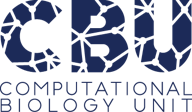 Expanding the RNA biology toolbox
Expanding the RNA biology toolbox
The introduction of third-generation sequencing platforms is revolutionizing RNA biology studies. For the first time, these devices allow sequencing of native RNA molecules in their entirety and with the potential to capture chemical modifications that may regulate them. We are developing novel tools to characterize these and other RNA features: poly-A tails (tailfindr), RNA modifications and structure in a transcriptome-wide manner. Combining these novel approaches enable us to monitor and model regulation of RNA and translation in unprecedented ways.
 Quantifying and understanding translation initiation
Quantifying and understanding translation initiation
Translation initiation is a rate limiting step in translation. Despite this, it is only recently that technological development has made it possible to map the scanning ribosomes across the transcriptome. We use our ribosome complex profiling (RCP-seq) method that can capture both scanning 40S ribosome and elongating 80S ribosomes to study the dynamics of translation initiation. Together with our computational tools (ORFik), we aim to predict elements that impact ribosome recruitment and scanning to ultimately predict the context dependent translational initiation of any given mRNA.
 Genome engineering
Genome engineering
CRISPR/Cas9 system has revolutionized genome engineering. We develop tools that aid researchers in all stages of CRISPR experiments. Currently, we develop and maintain CHOPCHOP, a highly popular tool for guide RNA design and ampliCan for analyzing the outcome of high-throughput editing.
